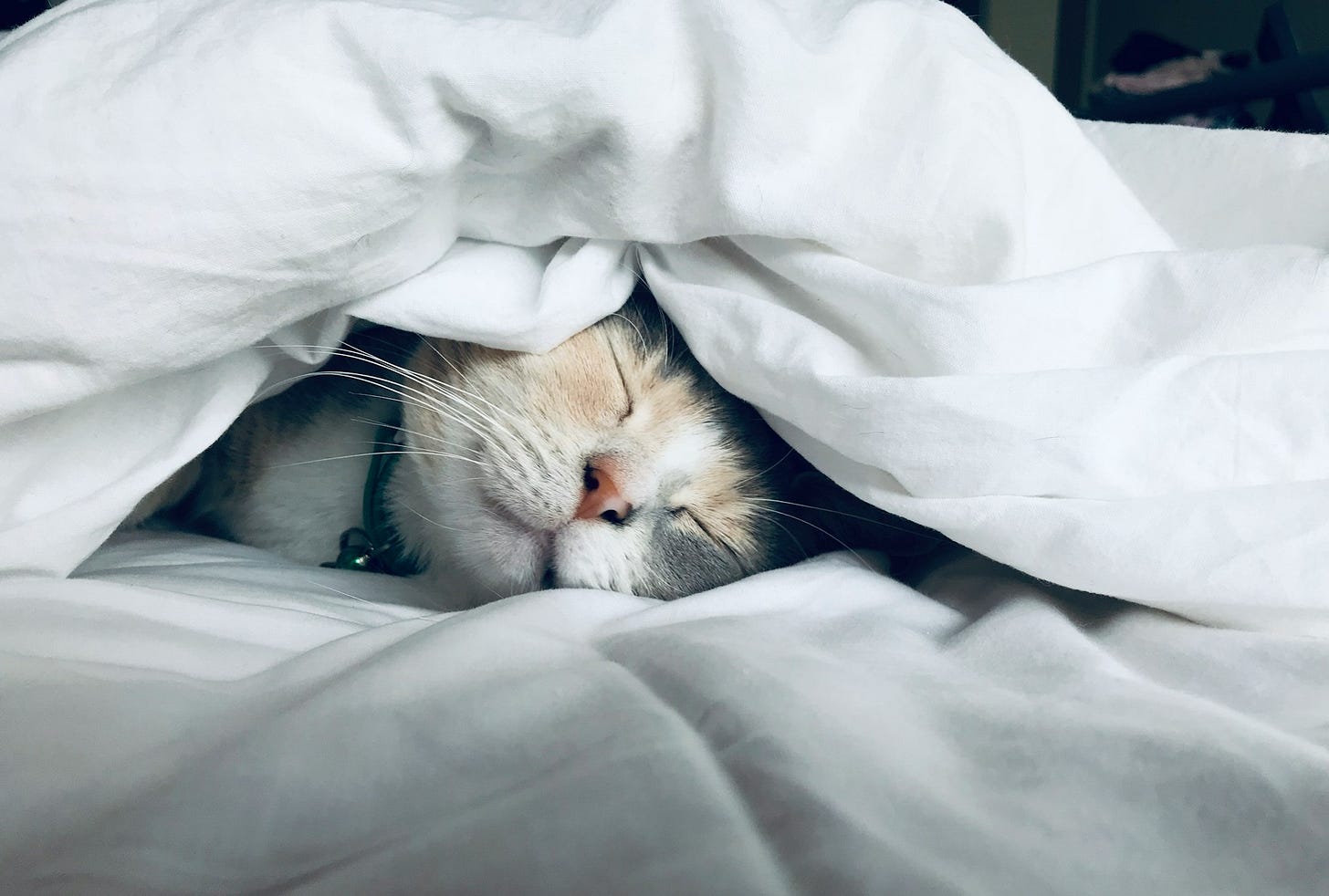My Struggle with Insomnia: Practical Tips and Strategies

Hello, everyone! I wanted to share my personal journey with insomnia and some tips that have helped me manage it over the years. If you struggle with sleep, this might be a long read, but I hope it helps!
Types of Insomnia
There are three main types of insomnia:
Difficulty falling asleep
Difficulty staying asleep
Waking up feeling tired
A person with insomnia can experience any one type or a combination of two or more. So, the question is, which kind of insomnia do you have?
My Experience
For me, insomnia has been a part of my life for over 15 years. I’m currently treating it, or at least trying to! Throughout my journey, I’ve done a lot of research (since I can’t sleep, I have plenty of time for it!). One significant insight I’ve gained is the connection between sleep and weight loss. Sleep helps burn fat, and lack of sleep increases the appetite for salty and fatty foods (aka junk food). It’s a vicious cycle.
Tips for Better Sleep
Here are some tips and habits that have helped me:
Morning Routine
Sunlight Exposure: Wake up and go outside to see the sunlight for 60-90 seconds. The sun should be at eye level, typically around 5-6 am. This helps reset your circadian rhythm.
Exercise
Muscle-Based Exercise: Engage in muscle-based exercises, ideally after 8 pm, to tire yourself out. Aim for 40-50 minutes, three times a week.
Avoid Late Cardio: Avoid cardio-based exercises after 6 pm.
Evening Routine
Warm Bath: Take a warm bath one hour before bed.
Limit Caffeine: Limit coffee to once a day (not after 12 pm); caffeine takes 7-12 hours to wash out of your system. Avoid cola and even hot chocolate as they also contain caffeine. Read the labels!
Hydration
Drink Water: Drink at least 2 liters of water daily. Online resources can help you determine the right amount based on your weight. Drink water in sips rather than all at once to avoid instant urination without proper absorption.
Manage Water Intake: I use water bottles with hourly markings placed in different locations at home and work to ensure I always have access and a visual cue to drink.
Caffeine and Hydration: Remember, coffee also depletes water from your body. Water helps recycle body waste.
Relaxation
Swimming: Swimming is a very relaxing activity; try it once a week.
Sunset Exposure: Catch the sundown to help reset your circadian rhythm.
Supplements: I take supplements to relax my muscles and brain, like magnesium, NAC with inositol, vitamin D, and omega-3.
Diet
Finish Eating Early: Finish eating 3-4 hours before bed. Establish a routine: eat, drink water, read a book, then go to bed. Make your bed a sacred place only for sleeping.
Quality Food: I discovered mild intolerances to gluten and cow products. Avoiding these, especially before bed, reduces issues like acid reflux and gas, leading to better sleep.
Nighttime Routine
Midnight Peeing: Manage water intake to avoid waking up for bathroom trips.
Avoid Caffeine: Tea also contains caffeine.
Alternative Stimulants: To get through the day without coffee, tea, or cigarettes, try exercising. If you feel sleepy, take a nap or a 5-minute walk outside.
Technology and Environment
Sleep Tracking: Monitor your sleep with a good sleep tracking device (not a mobile app; I find them gimmicky). Don’t obsess over sleep reports. If you wake up feeling good, ignore the report. Use the 7-day average reports.
Phone Settings: My phone is constantly on silent mode. I don't have social media apps on my phone, and all push notifications are off. I reply on my own time. I have a night schedule (10 pm-7 am) on my phone, locking all apps unless I unlock them. I also limit my time on popular video platforms.
Cool Down: Try to cool down your body during sleep by using fans, bamboo-based bed sheets to soak up sweat, etc.
Dark Environment: Use a sleep mask to make your environment 100% dark. This is very important. You can also try earplugs.
Brain Dump: If I have too much on my mind, I write it down. Either I send myself a one-liner email or write everything in a notebook to clear my mind.
Research Materials
Some of the research materials I used:

